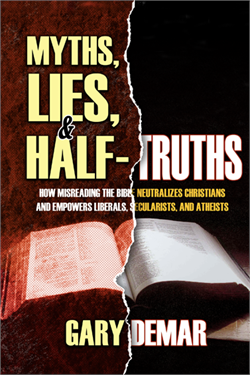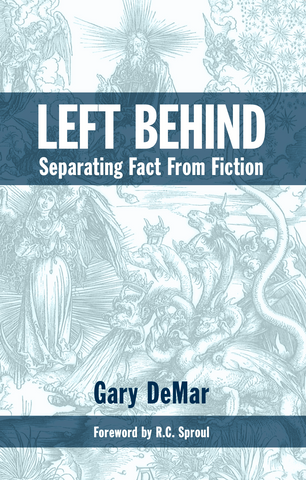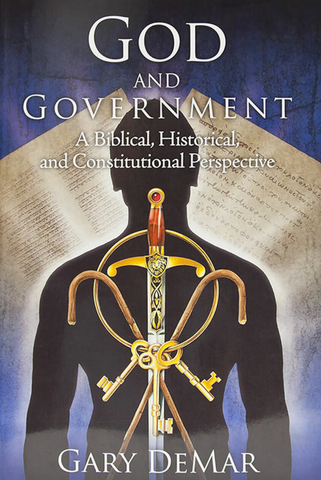Little has changed when it comes to American politics. The names have changed, but the policies are the same. The same is true of voters. Prior to 1976, there was no designated Christian voting bloc. Christians were dragged into politics as a designated group kicking and screaming. They had all kinds of excuses:
• Jesus didn’t get mixed in politics.
• We can’t impose our morality on other people.
• There’s a separation between church and state.
• Satan is the god of this world.
• Render unto Caesar.
• Jesus’ kingdom is not of this world.
The latest concoction is that there’s not a dime’s worth of difference between the Democrats and Republicans. There’s also, “Voting for the lesser of two evils is still evil.”
I want to look back when Christians and politics became national news and changed everything and changed nothing.
Jerry Falwell (1933-2007) made several transitions in his fruitful ministry. Few people had heard of Falwell before 1979. His Thomas Road Baptist Church, founded by him in 1956 when he was just 22 years old was his mission in life. Lynchburg Christian Academy later opened in 1967. In 1971, Falwell co-founded Liberty University with Elmer L. Towns. Today, Liberty University offers over 350 accredited programs of study, with approximately 13,000 students on-campus and 90,000 online. There’s a story that Gary North had something to do with Liberty’s online university. Read this article written by Dr. Gary North in 2011.
Until 1979, Falwell was generally apolitical. In a sermon delivered in 1965, entitled “Ministers and Marchers,” Falwell said:
[A]s far as the relationship of the church to the world, [it] can be expressed as simply as the three words which Paul gave to Timothy—“Preach the Word.” This message is designed to go right to the heart of man and there meet his deep spiritual need. Nowhere are we commissioned to reform externals. We are not told to wage war against bootleggers, liquor stores, gamblers, murderers, prostitutes, racketeers, prejudiced persons or institutions or any other existing evil as such. Our ministry is not reformation, but transformation. The gospel does not clean up the outside but rather regenerates the inside.
While we are told to “render unto Caesar the things that are Caesar’s,” in the true interpretation we have very few ties on this earth. We pay our taxes, cast our votes as a responsibility of citizenship, obey the laws of the land, and other things demanded of us by the society in which we live. But at the same time, we are cognizant that our only purpose on this earth is to know Christ and to make him known. Believing the Bible as I do, I would find it impossible to stop preaching the pure saving gospel of Jesus Christ, and begin doing anything else —including fighting Communism, or participating in civil-rights reforms.[1]
Fifteen years later, Dr. Falwell repudiated these remarks, calling them “false prophecy.” In his 1980 book Listen, America!, he outlined his new agenda that included politics: “I am speaking to rally together the people of this country who still believe in decency, the home, the family, morality, the free enterprise system, and all the great ideals that are the cornerstone of this nation. Against the growing tide of permissiveness and moral decay that is crushing our society, we must make a sacred commitment to God Almighty to turn this nation around immediately.”[2]
What Falwell did not understand was that his 1965 remarks were biblical but incomplete. There was nothing to apologize for. The first step in turning a culture around is to “Preach the Word.” The heart of man must be changed before there will be any external change, either individually or societal.
There still exists in some parts of Christendom a dualistic worldview where one must give up reformation for individual transformation. The Christian’s ministry is first individual transformation (preaching the gospel) and only then reformation (discipleship); it’s conversion then discipleship; justification then sanctification. The changing of the broader culture is based on two essential elements: (1) the preaching of the gospel and (2) the implementation of God’s Word to every area of life. This is mustard seed and leaven Christianity.
Let’s look at an interesting example of how this might work. In the 1970s and 1980s, there was great concern over the content of rock music lyrics. Some of you might be surprised that Tipper Gore, the former wife of Al Gore, spearheaded this drive. You can read about it here. One proposed solution was to put warnings on the outside of the albums informing parents that the contents contain explicit sexual language. Some even wanted a listing of the lyrics so parents would know what their children were listening to. It is nearly impossible to enforce an ethic when a society constantly rebels against it. Consider the Eighteenth Amendment and Prohibition. But when it comes to specific biblical laws that oppose abortion and manstealing, it is the duty of Christians to act through persuasion.
Christians seeking to influence law and public policy must be sensitive not only to basic biblical and theological principles, but to practical considerations as well. Would the proposed law be enforceable? If not, the actual effect of legislation might be to undercut respect for the rule of law and the credibility of Christian political action. The unsuccessful attempt to outlaw the production and sale of alcoholic beverages during Prohibition is an example. The enforceability of a given law presupposes a significant degree of community consensus regarding its justice and wisdom. At times, however, a prophetic minority may be called to create a consensus where none exists….[3]
None of what Davis writes suggests that Christians must remain silent until everyone’s heart has changed. We would still have slavery today if that was the only approach. We do know that many Christians led the charge against the slave trade and were successful.
The biblical approach is to change the hearts and minds of people through the preaching of the gospel through which the sovereign work of the Spirit does His work. The result is that there is no longer a market for such material. Let’s look at a biblical example. When the Gospel was preached in Ephesus, the black arts were exposed:
And many of those who practiced magic brought their books together and began burning them in the sight of all; and they counted up the price of them and found it [added up to] fifty thousand pieces of silver. So, the word of the Lord was growing mightily and prevailing (Acts 19:19-20).
A change in heart and mind (transformation) resulted in a change in lifestyle (reformation). The market for these books dried up. Obviously, the consensus had changed. Now it would be easier to pass laws prohibiting the importation of these materials, if that was justified and needed. But such laws would do little good if the people had a change of heart and mind to embrace the demonic spirits to which they were in bondage. There needs to be a community aversion to moral evil. That comes with consensus.
What made Falwell and so many others change their minds about politics? Yes, politics was dirty, but now it had become bloody with the death of the unborn. In the words of Bob Dylan, “the times, they were a changin’,” and Christians were beginning to wake up and be convinced that politics was a legitimate sphere of influence like education. Even so, many Christians felt that Falwell and other visible activists like Tim LaHaye (1926-2016) were trying to lay a moral foundation on something other than Jesus Christ and His Word. Now, I am not implying that these men ceased to believe in Jesus and/or the Bible. These men stood foursquare on the Bible. But one got the impression that the Christian religion and the Bible were relegated to an upper story spiritual realm. Such things could not appropriately touch on political issues except in some indirect way. This is why when the Moral Majority leaders were pressed as to their agenda, they made the following statements:
• “Moral Majority is a political organization and is not based on theological considerations.”[4]
• “The battle against humanism … is not theological; it is moral.”[5]
A survey of Christian history will show that this has not been the Church’s position. “Abraham Kuyper (1837-1920), homeschooled by his father, minister in the Dutch Reformed Church, prime minister of the Netherlands, editor of the newspaper The Standard, president of the Free University of Amsterdam, founder of the Anti-Revolutionary Party, and prolific author, said, ‘There is not a square inch in the whole domain of our human existence over which Christ, who is Sovereign over all, does not cry, “Mine!”’”[6] Historically, the church did not divide the world into two opposing realms, consisting of sacred/secular, spiritual/material. The sacred governed the secular (this age) and the spiritual governed the material. More importantly, the Bible does not divide the world this way. The Bible is concerned about the distinction between good and evil, right and wrong, moral and immoral wherever such distinctions can be made.
The Moral Majority critics, however, knew that Falwell did see the battle in theological terms. It couldn’t be helped; it just could not be advertised. At an “I Love America” rally, Falwell counseled the crowd to use “theological considerations” in their choice of candidates: “If a man stands by this book [holding up a Bible], vote for him. If he doesn’t, don’t.”[7] Falwell could not defend this position in terms of the generally accepted doctrine of religious pluralism and his own separatist Baptist background. The theocratic rhetoric changed in 1980 when Falwell “renounced his earlier vows to Christianize America.”[8] “Theological considerations” were out while traditional values were ushered in. Falwell admitted that “we count among us Fundamentalists, Protestants, Roman Catholics, Jews, Mormons, and persons of no particular religious convictions at all who believe in the moral principles we espouse.”[9] (This is fine for wartime strategy, and we are in a war and in a fox hole with the enemy advancing, but it will not work after the war is over and a culture must be rebuilt. Fundamentalism has never developed such an agenda. Part of the problem with Falwell and “Left Behind” LaHaye was their prophetic views. Falwell stated during a December 27, 1992, television broadcast, “I do not believe there will be another millennium … or another century.”)
With a moral rather than a biblical common denominator, the Moral Majority sounded like every other advocate touting the virtues of “morality.” These non-religious moral advocates were seen as less strident, and there was no need to repent and trust in the finished work of Jesus Christ. A regenerated heart and mind were not required. Former Education Secretary William Bennett called “for a new approach to moral education, one that gives kids a grounding in what Bennett describes as ‘those values all Americans share.’”[10] If there is still a consensus morality, one must ask where this consensus originated. Within America the obvious answer is biblical Christianity. With theological considerations gone, the Moral Majority was no longer unique. Robert E. Webber makes this observation: “Thus, what the Moral Majority espouses is a morality based on civil religion, not on the unique revelation of God in the person and work of Jesus Christ.”[11] There is only so far an organization can go on a lowest common denominator worldview. The Moral Majority ceased to be prophetic. Its emphasis had become nearly solely “conservative” while not being necessarily Christian. The nation was not being called back to God through Jesus Christ. Rather, the nation was encouraged to become moral. That’s not a bad thing, but it’s not a life-transforming thing. Repentance and the need for a Savior is what our nation needs. Morality will flow out of conversion when new Christians embrace all the Bible.
The Moral Majority faded. Many Christians went back to being pietistic and avoided getting involved in politics. Interest in the “rapture” was revived with the publication of the Left Behind series.

Myths, Lies, and Half-Truths
Too many Christians believe that the Bible is irrelevant this side of heaven. Myths, Lies, and Half-Truths takes a closer look at God’s Word and applies it to erroneous misinterpretations of the Bible that have resulted in a virtual shut-down of the church’s full-orbed mission in the world (Acts 20:27). Due to these mistaken interpretations and applications of popular Bible texts to contemporary issues, the Christian faith is being thrown out and trampled under foot by men (Matt. 5:13).

Left Behind: Separating Fact from Fiction
What difference does it make what we believe about the end times anyway? DeMar addresses that question as well, showing how our point-of-view regarding end-times prophecies affects the way we live each day. In addition, DeMar answers skeptics who use failed end-times predictions to disprove the Bible. Giving us a different perspective on the end times, this approach to the Bible could revolutionize the life of the church.

God and Government
With a fresh new look, more images, an extensive subject and scripture index, and an updated bibliography, God and Government is ready to prepare a whole new generation to take on the political and religious battles confronting Christians today. May it be used in a new awakening of Christians in America—not just to inform minds, but to stimulate action and secure a better tomorrow for our posterity.
[1] Quoted in James A. Speer, New Christian Politics (Macon, GA: Mercer University Press, 1984), 19-20.
[2] Jerry Falwell, Listen, America! (New York: Doubleday, 1980), 244.
[3] John Jefferson Davis, Evangelical Ethics: Issues facing the Church Today (Phillipsburg, NJ: Presbyterian and Reformed, 1985), 19-20.
[4] Jerry Falwell, “Moral Majority Opposes Christian Republic,” Moral Majority Report, 1:13 (October 15, 1980), 4.
[5] Tim LaHaye, The Battle for the Mind (Old Tappan, NJ: Fleming H. Revell, 1980), 187.
[6] Abraham Kuyper, “Sphere Sovereignty,” in James D. Bratt, ed., Abraham Kuyper: A Centennial Reader (Grand Rapids: Eerdmans, 1998), 488.
[7] Time (October 1, 1979), 62.
[8] Flo Conway and Jim Siegelman, Holy Terror: The Fundamentalist War on America’s Freedoms in Religion, Politics and Our Private Lives (Garden City, NY: Doubleday, 1982), p. 168.
[9] Jerry Falwell, “Moral Majority: A Response to Attack on Basic Values of Millions of Americas,” Conservative Digest, Vol. 7, No.1 (January 1981), 28. Quoted in Robert E. Webber, The Moral Majority: Right or Wrong? (Westchester, IL: Crossway Books, 1981), 39. Emphasis added by Webber.
[10] The Atlanta Journal and Constitution (November 28, 1095), 49A.
[11] Webber, Moral Majority, 39.
















